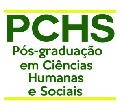Banca de DEFESA: LUCIANA AKEMI FUJITA
Uma banca de DEFESA de MESTRADO foi cadastrada pelo programa.STUDENT : LUCIANA AKEMI FUJITA
DATE: 13/10/2022
TIME: 09:00
LOCAL: Sala 306 do Bloco B do Campus de Santo André da Universidade Federal do Abc
TITLE:
THE SCARS OF ATOMIC BOMBS ON HIROSHIMA AND NAGASAKI SURVIVORS: THE MEMORIES OF THOSE WHO IMMIGRATED TO BRAZIL
PAGES: 200
BIG AREA: Ciências Humanas
AREA: Sociologia
SUBÁREA: Outras Sociologias Específicas
SUMMARY:
Every war leaves traces on society and its population, either by the devastation of the territory, physical weakness of the survivors or dead. Everyone, somehow, loses with the war. But how to resist or fight the unknown? A weapon of mass destruction, such as the atomic bomb, when explode in a city does not separate civilians from military personnel, it simply kills whoever is on target and extends its damage to its range, which varies by direction, air velocity and location of explosion (air or ground). Many people died in Hiroshima and Nagasaki without knowing what hit them and only 10% of who survived could tell anything about what happened. And aside from the accounts of the day of the bombing, practically nothing is known about these people, how they survived in the chaos, stayed in the territory or chose to relocate. And who loses a conflict is neutralized both in combat and historically, American censorship soon suppressed the story of the atomic bomb victims, so that the “peace” of the victors prevailed and the version of the victors was perpetuated. Thus, among the issues presented in this paper are the real need to use the bomb to end the war and save thousands, or millions, of allied lives - as then-US President Harry S. Truman reported - the Japanese and America situation at the end of the war, the arms race, to finally focus on the victims and their stories and memories: how survived after the bomb and faced difficulties and traumas of a war (poverty, hunger, mourning, effects of radiation, unemployment and discrimination) in a world that see them as enemies or as those that lost the war. The purpose of this is to give voice to this neglected past and to open discussions about the use and effects of these weapons on civilians. As this research was conducted in Brazilian territory, it was chosen people affected by the atomic bomb explosion, the hibakushas, who immigrated to Brazil. Through texts, data, testimonials, questionnaires and interviews we seek to understand the multiple forms of human resistance and reconstruction that surround the history of these immigrants, who lost the war in Japan but never lost hope of conquering day. of peace in their lives and families.
BANKING MEMBERS:
Presidente - Interno ao Programa - 1372715 - ADRIANA CAPUANO DE OLIVEIRA
Membro Titular - Examinador(a) Interno ao Programa - 665.953.478-49 - MARILDA APARECIDA DE MENEZES - UFABC
Membro Titular - Examinador(a) Externo à Instituição - PRISCILA FERREIRA PERAZZO - USCS
Membro Suplente - Examinador(a) Interno ao Programa - 1847300 - JOSE BLANES SALA
Membro Suplente - Examinador(a) Externo ao Programa - 1671296 - HARKI TANAKA




